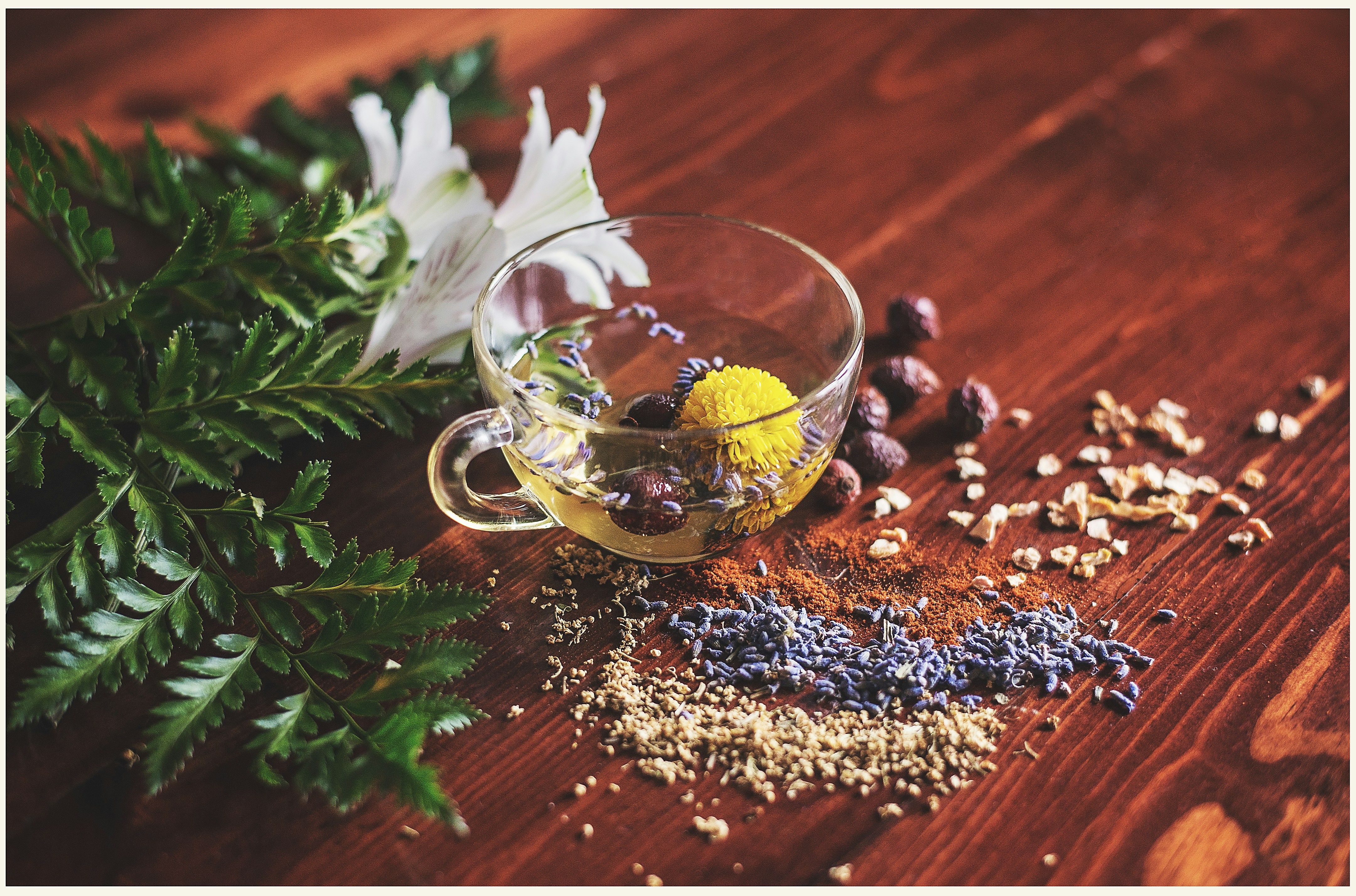In this fascinating article, you will uncover the remarkable health benefits that herbs and spices have to offer. We all know how these flavorful ingredients enhance the taste of our favorite dishes, but did you know they can also boost our well-being? From reducing inflammation to improving digestion, the world of herbs and spices is filled with endless possibilities for enhancing our physical and mental health. So get ready to embark on a journey exploring the amazing benefits that these natural wonders bring to our lives.
Exploring the Health Benefits of Herbs and Spices
Herbs and spices have been used for centuries to add flavor to our dishes, but did you know that they also have numerous health benefits? From boosting our immune system to managing chronic diseases, herbs and spices can play a crucial role in improving our overall well-being. In this article, we will explore the importance of herbs and spices in our diet, delve into their nutritional value, and examine how they can promote various aspects of our health.
Understanding the Importance of Herbs and Spices in our Diet
Cultural and Historical Significance
Herbs and spices hold significant cultural and historical importance in a variety of cuisines around the world. They have been used for centuries to add depth and flavor to dishes, enhancing the culinary experience. From the use of basil in Italian cuisine to the inclusion of turmeric in Indian dishes, herbs and spices have shaped the gastronomic identities of different regions.
Flavor Enhancers in Cooking
One of the key roles of herbs and spices in our diet is their ability to enhance the flavor of our food. With a wide range of aromatic compounds, they can transform a bland meal into a delicious and satisfying culinary delight. Whether it’s the earthy aroma of rosemary, the warmth of cinnamon, or the pungent kick of garlic, herbs and spices add depth, complexity, and nuance to our dishes.
Natural Alternative to Salt and Sugar
If you’re looking to reduce your intake of salt and sugar, herbs and spices can be excellent alternatives. By adding flavor and depth to our meals, they can help reduce the need for excessive seasoning with salt or sugar. This is particularly beneficial for individuals looking to lower their blood pressure or manage conditions like diabetes.
Rich Sources of Antioxidants
Antioxidants are compounds that help protect our cells from damage caused by harmful molecules called free radicals. Herbs and spices are rich sources of antioxidants, which can play a crucial role in reducing the risk of chronic diseases such as cancer, heart disease, and neurodegenerative disorders. Including a variety of herbs and spices in our diet can help boost our antioxidant intake and support our overall health.
Providing Essential Vitamins and Minerals
In addition to being rich in antioxidants, herbs and spices also provide essential vitamins and minerals. While they may not be significant sources of these nutrients, incorporating them into our meals can contribute to our overall nutrient intake. For example, herbs like parsley and cilantro are excellent sources of vitamin K, which is essential for blood clotting and bone health.
Exploring the Nutritional Value of Herbs and Spices
Understanding the Macronutrients and Micronutrients in Herbs and Spices
While herbs and spices are not typically consumed in large quantities, they still offer valuable macronutrients and micronutrients. Macronutrients such as carbohydrates, proteins, and fats are present in minimal amounts, but they contribute to the overall nutritional profile of these plant-based ingredients. Micronutrients like vitamins and minerals can also be found in varying amounts, making herbs and spices not only flavorful but also nutritionally beneficial.
Powerhouse of Antioxidants
As mentioned earlier, herbs and spices are packed with antioxidants that can help protect our cells from damage. Examples of antioxidants commonly found in herbs and spices include polyphenols, flavonoids, and carotenoids. These compounds have been linked to a range of health benefits, including reducing inflammation, improving heart health, and preventing certain types of cancer.
Anti-inflammatory Properties
Chronic inflammation is thought to be an underlying factor in many diseases, including heart disease, diabetes, and certain types of cancer. Several herbs and spices have been found to possess anti-inflammatory properties, which can help mitigate the risk and severity of these chronic conditions. Turmeric, ginger, and cinnamon are among the herbs and spices that have shown promise in reducing inflammation in the body.
Rich in Vitamins and Minerals
While herbs and spices may not be significant sources of macronutrients, they contain a wide array of vitamins and minerals. For example, parsley is an excellent source of vitamin K, vitamin C, and vitamin A. Similarly, thyme is rich in vitamin C and vitamin A, while also providing iron and manganese. By incorporating a variety of herbs and spices into our meals, we can increase our intake of these essential nutrients.
Potential Role in Disease Prevention
In addition to their nutritional value, herbs and spices may also play a role in preventing certain diseases. For instance, turmeric has been extensively studied for its potential anti-cancer properties, while cinnamon has shown promise in managing blood sugar levels and reducing the risk of diabetes. More research is needed, but these initial findings highlight the potential of herbs and spices as preventive tools in maintaining our health.
Boosting Immune System with Herbs and Spices
Immune-Boosting Herbs and Spices
The immune system is our body’s defense mechanism against infections and diseases. Certain herbs and spices have been found to possess immune-boosting properties, helping to strengthen our immune system and promote overall health. Examples of immune-boosting herbs and spices include garlic, ginger, oregano, and black cumin.
Enhancing Resistance to Infections
Herbs and spices can support our immune system by enhancing our resistance to infections. For example, garlic has antimicrobial properties and has been used traditionally to prevent and treat common illnesses like colds and flu. Similarly, ginger has been found to stimulate immune cells, helping to defend against respiratory infections and other microbial threats.
Strengthening White Blood Cell Activity
White blood cells play a crucial role in our immune response by detecting and destroying infectious agents. Some herbs and spices have been shown to strengthen the activity of these immune cells. Oregano, for instance, contains compounds that can enhance the function of white blood cells, helping to fortify our body’s defense against pathogens.
Anti-microbial Properties
Certain herbs and spices possess antimicrobial properties, which means they can inhibit the growth of harmful microorganisms such as bacteria, viruses, and fungi. Garlic, for example, has been shown to have broad-spectrum antimicrobial activity, making it a valuable addition to our diet for combating various infections.
Reducing Severity and Duration of Common Illnesses
In addition to boosting our immune system, herbs and spices may also help reduce the severity and duration of common illnesses. For instance, studies have suggested that ginger can alleviate symptoms of nausea and vomiting, making it an effective natural remedy for pregnancy-related morning sickness or motion sickness. Similarly, oregano and thyme have been found to possess anti-inflammatory and antimicrobial properties, potentially helping to alleviate symptoms of colds and respiratory infections.
Managing Chronic Diseases with Herbs and Spices
Turmeric for Arthritis and Joint Health
Arthritis is a chronic condition characterized by joint inflammation and pain. Turmeric, a vibrant yellow spice commonly used in Indian cuisine, contains a compound called curcumin that has been found to possess anti-inflammatory and analgesic properties. Research suggests that curcumin may help reduce joint pain and inflammation in individuals with arthritis, making it a valuable addition to their treatment regimen.
Cinnamon for Diabetes Management
Diabetes is a chronic condition characterized by high blood sugar levels. Cinnamon, a warm and aromatic spice, has been found to have blood sugar-lowering effects. It can enhance insulin sensitivity, improve glucose uptake, and reduce insulin resistance. Incorporating cinnamon into the diet may have potential benefits for individuals with diabetes in managing their blood sugar levels.
Ginger for Digestive Disorders
Digestive disorders, such as indigestion and nausea, can significantly impact our quality of life. Ginger has long been used as a natural remedy for various gastrointestinal issues. It possesses a compound called gingerol, which has been shown to stimulate digestion, relieve nausea, and reduce bloating and gas. Ginger can be consumed in various forms, including fresh, powdered, or as a tea, to alleviate digestive discomfort.
Garlic for Cardiovascular Health
Cardiovascular diseases, including heart disease and high blood pressure, are leading causes of death worldwide. Garlic, with its distinctive aroma and flavor, has been found to have numerous cardiovascular benefits. It can help lower blood pressure, reduce cholesterol levels, prevent blood clot formation, and improve blood circulation. Adding garlic to our meals can be a heart-healthy choice.
Rosemary for Brain Health
The brain is an essential organ that requires proper nourishment for optimal function. Rosemary, an aromatic herb with a delightful fragrance, contains compounds that may support brain health. Some studies have suggested that rosemary may enhance cognitive function, improve memory, and protect against age-related cognitive decline. Incorporating rosemary into our cooking or enjoying its aroma may offer cognitive benefits.
Promoting Digestive Health with Herbs and Spices
Herbs and Spices for Digestive Disorders
Digestive disorders can range from minor discomforts, such as indigestion and bloating, to chronic conditions like irritable bowel syndrome (IBS). Fortunately, certain herbs and spices have properties that can promote digestive health. Peppermint, for example, has been found to relax the muscles of the gastrointestinal tract, relieving symptoms of bloating and indigestion. Additionally, fennel, chamomile, and ginger are known for their soothing effects on the digestive system.
Relieving Indigestion and Bloating
Indigestion and bloating are common digestive complaints that can be alleviated with the help of herbs and spices. Chamomile, for instance, has been traditionally used to calm an upset stomach and relieve indigestion. Fennel, with its distinct licorice-like flavor, can help relax the muscles of the gastrointestinal tract, reducing bloating and promoting digestion.
Soothing and Healing the Gut Lining
Certain herbs and spices can help soothe and heal the lining of the gut, making them beneficial for individuals with conditions like gastritis or ulcers. Aloe vera, for example, has been used for centuries to promote gastrointestinal health due to its soothing and anti-inflammatory properties. Licorice root, another herb with a sweet flavor, has been shown to protect the gut lining and support healing.
Improving Nutrient Absorption
Optimal nutrient absorption is essential for overall health and well-being. Some herbs and spices can aid in the proper digestion and absorption of nutrients. Ginger, for instance, has been found to stimulate the production of digestive enzymes, helping to break down food and enhance nutrient absorption. Turmeric, on the other hand, can boost the secretion of bile, which plays a crucial role in fat digestion and absorption.
Enhancing Digestive Enzyme Production
Digestive enzymes are responsible for breaking down the macronutrients in our food into smaller molecules that can be absorbed by the body. Certain herbs and spices have been found to stimulate the production of digestive enzymes, aiding in the digestive process. For example, papaya contains an enzyme called papain, which can help break down proteins, while cinnamon has been found to enhance the activity of digestive enzymes, aiding in carbohydrate metabolism.

Reducing Inflammation and Relieving Pain with Herbs and Spices
Anti-inflammatory Herbs and Spices
Chronic inflammation is at the root of many diseases, including arthritis, heart disease, and certain types of cancer. Some herbs and spices possess anti-inflammatory properties, which can help reduce inflammation in the body. Turmeric, with its active compound curcumin, has been extensively studied for its potent anti-inflammatory effects. Other herbs and spices known for their anti-inflammatory properties include ginger, cinnamon, and cloves.
Natural Pain Relievers
Pain, whether acute or chronic, can significantly affect our quality of life. Certain herbs and spices can act as natural pain relievers and provide relief from various types of pain. Ginger, for example, has been found to possess analgesic properties and can help alleviate pain associated with arthritis and muscle soreness. Cloves, with their strong and aromatic flavor, contain a compound called eugenol that may have pain-relieving effects.
Managing Symptoms of Rheumatoid Arthritis
Rheumatoid arthritis is an autoimmune disease characterized by chronic joint inflammation, pain, and stiffness. While medical treatment is important in managing the condition, some herbs and spices may offer additional relief from the symptoms. Turmeric, due to its powerful anti-inflammatory properties, has shown promise in reducing joint pain and stiffness in individuals with rheumatoid arthritis. Consuming it in meals or as a supplement may complement conventional treatment.
Easing Headaches and Migraines
Headaches and migraines can be debilitating, leaving individuals seeking relief. Certain herbs and spices may provide natural alternative options for managing these conditions. Peppermint, for instance, has been found to have a soothing effect on headaches and migraines. Inhaling its aroma or applying diluted peppermint essential oil to the temples may help alleviate symptoms and promote relaxation.
Alleviating Menstrual Cramps
Menstrual cramps, also known as dysmenorrhea, can cause significant discomfort and pain in many women. Some herbs and spices have been traditionally used to alleviate menstrual cramps and promote overall menstrual health. Ginger, with its anti-inflammatory and analgesic properties, has shown promise in reducing the severity and duration of menstrual pain. Drinking ginger tea or taking ginger supplements may offer relief during menstruation.
Improving Cognitive Function with Herbs and Spices
Herbs and Spices for Memory Enhancement
As we age, cognitive decline, including memory loss, becomes a concern for many. Certain herbs and spices have been found to possess memory-enhancing properties, potentially supporting brain health. Rosemary, with its refreshing scent, has been shown to enhance cognitive performance and memory. Additionally, sage, known for its distinct flavor, has been traditionally used for memory improvement and has shown some potential in scientific studies.
Protecting against Cognitive Decline
Cognitive decline is a natural part of the aging process, but some herbs and spices may help slow down or protect against it. Turmeric, with its active compound curcumin, has been extensively studied for its potential in preventing age-related cognitive decline and neurodegenerative diseases such as Alzheimer’s. Regular consumption of curcumin-rich foods, like curries, or taking curcumin supplements may support brain health.
Improved Focus and Concentration
Maintaining focus and concentration is essential for productivity and overall cognitive function. Some herbs and spices can help improve mental clarity and enhance attention span. Ginseng, for example, has been traditionally used for its cognitive-enhancing properties. Studies suggest that ginseng may improve memory, attention, and overall cognitive performance.
Reducing the Risk of Neurodegenerative Diseases
Neurodegenerative diseases, such as Alzheimer’s and Parkinson’s, are characterized by the progressive breakdown and decline of nerve cells in the brain. While there is no cure for these conditions, certain herbs and spices may help reduce the risk or slow down the progression. Turmeric, due to its anti-inflammatory and antioxidant properties, has shown promise in protecting against neurodegenerative diseases.
Promoting Mental Well-being
Mental well-being is crucial for overall health and happiness. Some herbs and spices are known to have a positive impact on mood and emotional well-being. Saffron, a spice derived from the crocus flower, has been found to have antidepressant effects and may help improve mood. Including small amounts of saffron in meals or as a supplement may help promote mental well-being.

Supporting Cardiovascular Health with Herbs and Spices
Lowering Blood Pressure with Herbs and Spices
High blood pressure, or hypertension, is a significant risk factor for cardiovascular diseases. Some herbs and spices may help lower blood pressure and contribute to better heart health. Garlic, with its sulfur compounds, has been found to have a modest but significant blood pressure-lowering effect. Adding garlic to our meals can be a flavorful way to support cardiovascular health.
Reducing LDL Cholesterol Levels
High levels of LDL (low-density lipoprotein) cholesterol in the blood can increase the risk of heart disease. Certain herbs and spices may help reduce LDL cholesterol levels, promoting better cardiovascular health. Turmeric, for instance, has been found to have cholesterol-lowering properties and can help improve the overall cholesterol profile. Consuming turmeric regularly as part of meals or taking curcumin supplements may support heart health.
Maintaining Healthy Blood Sugar Levels
High blood sugar levels can put a strain on the cardiovascular system and increase the risk of heart disease. Some herbs and spices may help maintain healthy blood sugar levels, reducing the risk of cardiovascular complications. Cinnamon, with its blood sugar-lowering effects, may improve insulin sensitivity and help regulate blood glucose levels. Adding cinnamon to meals or beverages can be a delicious way to support heart health.
Improving Blood Circulation
Proper blood circulation is essential for delivering oxygen and nutrients to our organs and cells. Some herbs and spices have properties that can help improve blood circulation. Ginger, for example, has been found to promote vasodilation, which can enhance blood flow. By incorporating ginger into our diet or enjoying ginger tea, we can support healthy blood circulation.
Supporting Heart Health
Cardiovascular diseases, including heart disease, are a leading cause of death globally. Herbs and spices can play a role in supporting heart health by reducing inflammation, supporting blood vessel health, and protecting against oxidative stress. Including a variety of heart-healthy herbs and spices, such as garlic, turmeric, and ginger, in our diet can contribute to better cardiovascular health.
Enhancing Weight Loss with Herbs and Spices
Boosting Metabolism
A faster metabolism can aid in weight loss by helping the body burn calories more efficiently. Some herbs and spices have been found to have metabolism-boosting effects. Cayenne pepper, for instance, contains capsaicin, a compound that can increase metabolism and promote fat burning. Incorporating cayenne pepper or other spicy herbs and spices into our meals can give our metabolism a natural kick.
Suppressing Appetite
Controlling appetite is an essential aspect of weight management. Some herbs and spices have properties that can help curb cravings and suppress appetite. For example, saffron has been found to reduce snacking and increase feelings of fullness. Including small amounts of saffron in our meals may help us eat less and support weight loss efforts.
Increasing Thermogenesis
Thermogenesis refers to the body’s process of generating heat and burning calories. Certain herbs and spices can increase thermogenesis, aiding in weight loss. Green tea, for example, contains catechins that can enhance thermogenesis and fat oxidation. Enjoying a cup of green tea or incorporating green tea extracts into a balanced diet and lifestyle may contribute to weight loss.
Balancing Blood Sugar Levels
Maintaining stable blood sugar levels is important for weight management. Some herbs and spices can help regulate blood sugar levels, reducing the risk of weight gain and insulin resistance. Cinnamon, with its blood sugar-lowering effects, may support weight loss efforts by improving insulin sensitivity and reducing the storage of excess fat.
Providing Low-Calorie Flavor
When trying to lose weight, flavor is crucial to maintaining satisfaction and enjoyment in our meals. Herbs and spices can provide intense flavors without adding significant calories to our dishes. Using herbs like basil, parsley, or thyme, or spices like turmeric, cumin, or paprika can enhance the taste of our meals while keeping them nutritious and low in calories.
Utilizing Herbs and Spices for Natural Healing
Traditional Medicinal Uses of Herbs and Spices
In addition to their culinary uses, herbs and spices have a long history of medicinal use in traditional healing practices. Traditional medicine systems, such as Ayurveda and Traditional Chinese Medicine, have utilized the healing properties of herbs and spices for thousands of years. From treating digestive disorders to alleviating pain, these traditional practices have recognized and utilized the natural healing power of herbs and spices.
Preparation and Administration
Herbs and spices can be prepared and administered in various forms to harness their healing potential. Some examples include brewing herbal teas, making herbal infusions or decoctions, creating herbal tinctures or extracts, and incorporating herbs and spices into topical applications. The method of preparation and administration often depends on the specific herb or spice and its intended purpose.
Complementary and Alternative Medicine
Herbs and spices are often used as complementary or alternative medicine, either alongside conventional treatments or as standalone natural remedies. Many individuals seek out these natural options to support their health, prevent illness, or alleviate symptoms. It’s important to consult with a qualified healthcare professional before using herbs and spices for medicinal purposes, especially if you have any underlying health conditions or are taking medications.
Safety and Possible Side Effects
While herbs and spices are generally considered safe when consumed in culinary amounts, it’s essential to be aware of potential side effects and interactions. Some individuals may be allergic to certain herbs or spices, and others may experience gastrointestinal upset or interactions with medications. It’s always advisable to start with small quantities and observe any adverse reactions. Consulting with a healthcare professional or qualified herbalist can provide guidance on the safe and appropriate use of herbs and spices.
Harnessing the Healing Power of Nature
In a world where synthetic medicines dominate the healthcare landscape, herbs and spices offer a natural alternative for healing and promoting well-being. Their complex compounds and unique properties have the potential to support various aspects of our health, from enhancing our immune system to managing chronic diseases. By incorporating herbs and spices into our diet and exploring their medicinal applications, we can harness the healing power of nature and embrace a more holistic approach to our health and wellness.
In conclusion, herbs and spices are not just culinary delights; they also hold immense health benefits. From boosting our immune system to managing chronic diseases, promoting digestive health, reducing inflammation, improving cognitive function, supporting cardiovascular health, enhancing weight loss, and aiding in natural healing, herbs and spices have a multifaceted impact on our well-being. By incorporating a variety of herbs and spices into our diet and embracing their natural healing potential, we can nurture our health and enjoy the flavorful journey towards a healthier lifestyle.





